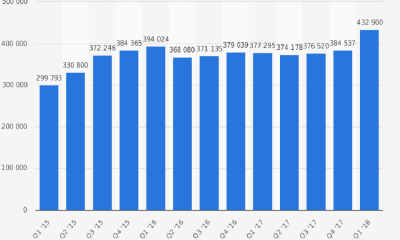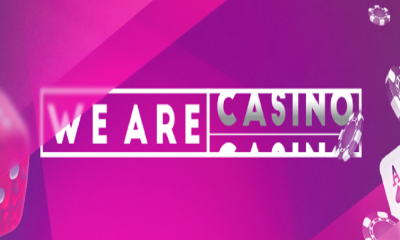


iGaming has grown tremendously over the world in the past few years. People are searching ways for newer entertainment that can be enjoyed without wasting much...


Brian Christopher, who runs BrianChristopherSlots, has recently found that YouTube has terminated his account. It happened exactly at the time when he was gearing up to...


If you do a simple Google search on some of the betting websites, you could end up thinking that Google’s famed search algorithm has finally failed....


Delaware has become the first state to make full-scale sports betting, following the recent US Supreme Court verdict that allowed individual states to make a decision...


NEW YORK, June 07, 2018 (GLOBE NEWSWIRE) — CryptoMillionsLotto, a cryptocurrency lottery offering players the chance to win life-changing jackpots, and investors to earn regular dividends...


June 07, 2018 10:54 ET | Source: Olympic Entertainment Group AS On 4 April 2017 OEG published a stock exchange release informing that Bratislava City Council decided to ban gambling...


Illinois’ gambling expansion plans hit a new roadblock as it became clear that the legislation will be completed only by the next legislative session. Illinois was...


A Polish trade association has criticised the government severely for making the registration process with Polish-licensed online sports betting operators too difficult. Late last month, Pracodawcy...


WeAreCasino, a Netherlands-based casino games supplier, has integrated a poker product from EvenBet Gaming into its platform. With this, WeAreCasino now has a responsive and reliable...


The Italy-based gaming and lottery supplier International Game Technology Plc (IGT) has started operations in Macau. In a recent announcement, the company said that its Hyper...
We are constantly showing banners about important news regarding events and product launches. Please turn AdBlock off in order to see these areas.